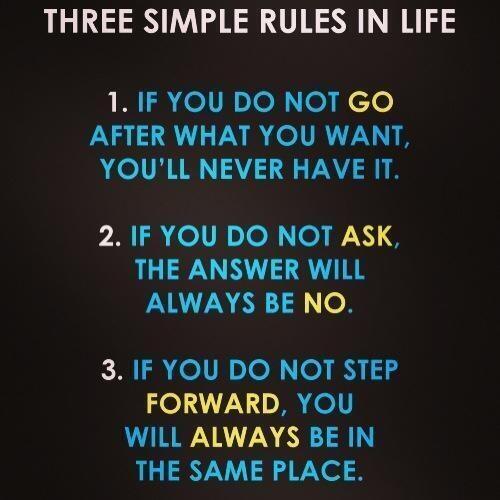Three weeks back, I was facilitating a presentation skills training and during the break I checked my phone and saw a message from my sister- pumping heart problem, call and please come urgently. I was in shock when I read the message and in that shock did not unlock my phone and check further details of the message.
My mom had been discharged just the day before, on Sunday, after spending 3-4 days in ICU. I was wondering how from Parkinson’s she was suddenly having heart problems. Little did I realize that it was my dad who was serious, till I called my sister and thereafter quickly read my messages. I was in a state of confusion and the break was only for 10 minutes. I was caught between thoughts of my dad and praying he gets ok and giving my fullest to the participants. There was a fear that was constantly pulling me away from keeping myself focused. Yet, I put my fear and panic aside and delivered the training.
My sister described to me on the phone later, when I arrived home, the events of that morning. She was caught between panic and having to act swiftly to rush my dad to the hospital. She acted in a timely manner, arranged for the ambulance and she and her husband managed to get my dad to the ICU in the nick of time.
Fear is part of our life’s journey. There is a fear that is created by our imagination and letting our mind wander wild and there is a panic that takes over us, when events rock our world.
Yes, in that moment of fear, our emotional part of the brain takes over and we go into a freeze, fight, flight or appease mode. The executive center of the brain or the logical part of the brain shuts down when we are in a state of fear.
Are there ways to manage this state of fear and have our rational part of the brain take over?
I’m reminded of Katherine Paterson’s quote on fear “To fear is one thing. To let fear grab you by the tail and swing you around is another.”
Ways to manage and overcome fear
1.Breathe
Deep breathing is something we hear often and yet forget about doing so. When we are in a state of panic, our breathing becomes shallow thereby sending a signal to the brain of anxiety.
When you are in fear, consciously take the following steps
-Tell yourself to stop whatever you are doing. This gives you a moment away from the emotion you are going through.
-Consciously breathe in and out and count the no of breaths in and out. Breathing in and out consciously is difficult when you are in an emotional state – be it fear, anger or feeling of overwhelm. Thus consciously forcing yourself to do this is important.
-Once you focus on your breathing… It becomes easier to increase the count you breathe in and breathe out. Counting your breath in and out allows you to focus and bring your rational brain into play again.
In a matter of less than 2 minutes, I was able to focus on the training by reminding myself to breathe in and out.
2.Focus on the task at hand and desired outcome
Ask yourself how important is the task at hand and will that be affected if you allow yourself to remain in the state of panic? Sometimes rating your fear on a scale of 1-10 v/s the importance of the task in hand on a scale of 1-10 helps to put things in perspective.
If there is a repetitive pattern of fear before a particular activity or task or even an unexpected event, reflecting on what you can do different, so that you don’t get into a fear mode is another way to gradually overcome fear.
Both my sister and I got ourselves to focus on our tasks at hand and didn’t allow our imagination to go wild.
3.Imagination
We imagine and imagination within limits is good. Imagination going wild can cause anxiety and fear. Think about the number of times you were worried about something and finally actual results or reality was far different from your wild imagination.
The thinking process that we go through, usually without realizing it, to get from a fact to a decision or action are based on our prior experiences and beliefs. Our prior experiences or beliefs can thus lead us to making our own interpretation of what the events mean and we draw conclusions based on these interpreted facts and our assumptions.
Fear and anxiety often arises from our uncontrolled imagination. When you get into this mode, either
-Ask yourself, “what is the worst that can possibly happen?”
-Prepare to accept the worst.
-Try to improve on the worst
and
Remind yourself of the exorbitant price you can pay for worry and anxiety in terms of your health. Decide just how much anxiety a thing may be worth and refuse to give it more.
There are things beyond one’s control and for such things it is best to Cooperate with the inevitable.
The past can be used as a guide for future, as an inspiration but never as a source of worry and anxiety.
Use your imagination to see yourself in a positive, present (in terms of where you want to be) and powerful state with regard to upcoming events and that will help you prepare and be in a calm state of mind.
On the day when my dad was hospitalized all I could do was to pray and hope for the best. By worrying and thinking about my dad at that point in time, I realized I would lose my focus on the task at hand. I also told myself, that the earliest I could leave was that evening because there were no flights earlier.
4.Cultivate a peaceful mental attitude
Our mind can be a monster and we should encourage ourselves to consciously fill our mind with thoughts of peace, courage, health, and hope. Keeping yourself constructively busy mentally and physically will help the mind and our brain to focus on achieving something and not wander away.
5.Gratitude
Reminding yourself of things you are capable of and what you have done builds the positivity and in that positive state of mind, creativity is encouraged and fear is reduced.
Having a mindset of gratitude to things you have, things that you are capable of and challenges that you have overcome helps to ease doubt and fear.
Fear is a state of mind and with some or all of the above points, we can learn to control our monkey mind.
Fears and self-doubts will come up when you take on a new role, take on greater responsibility, manage a larger team or new team or speak up. Find out what you limiting beliefs are by going through the above steps or hiring a professional coach.
To overcome fears and doubts and enhance your self-confidence, consult me for either one-on-one coaching, group coaching, facilitation, training or as a key note speaker.













